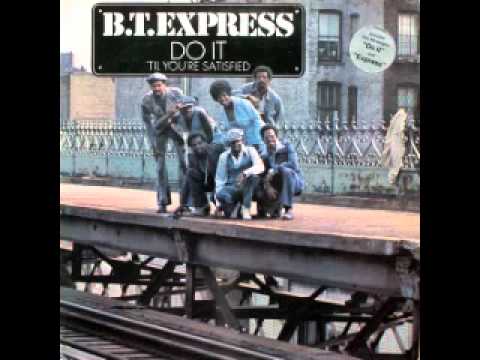
(Archive.)
Sunday, January 1, 2017
As we begin the new year, the ranks of Roscoe’s Basement are kind of beat up. Craig is walking wounded pending his hernia surgery, and my left arm is still in a heavy cast while the bone grows in around the titanium plate and screws that now hold my elbow together. And while our respective prognoses are good in the long term, the back end of winter promises to be pretty rotten.
I’m feeling especially sorry for myself. My car is still off the road until I can amass the funds for a full brake job, so I’m knocking around the house with nothing to do but brood. The usual personal drama — money trouble, the prospect of disability, a dear friend caught up in a nasty legal proceeding — is only compounded by the existential horrorshow of national politics. My brain is revving at full speed, but I find it nearly impossible to work. I’m not quite losing my marbles, but I am in imminent danger of misplacing them for a few weeks.
The menfolk of my people do not fare well in captivity. My old man had chronic back trouble, and once when I was a kid, he spent a stretch that seemed months long pancaked on his bed, unable to go to work. He had a restless mind, my old man, and TV, radio, and books were not enough to pacify him — not when he was laid flat by a slipped disc, suffering and squirrelly with boredom. He’d harbored ambitions of being a writer, a lifetime ago; and now his brain was bubbling with stories again. He called me to his bedside once to pitch me on an idea for a superhero comic that he would write and I would draw. I was just eleven years old, and I’m pretty sure my father hadn’t read a comic book since 1945. His spiel must have lasted a half-hour, and he was obviously desperate that I should embrace his goofy proposal. I’d never seen my old man like that — so hungry for approval, for enthusiasm. I remember that in the moment I pitied him intensely, and also that I was scared shitless.
I spend the holidays in a hell of my own thoughts. I’m lonesome, and angry, and more scared than I care to admit. There’s one time when I have to ask my son to tie my shoes for me, and I cry a little afterward. My head is swollen with ideas for songs, by way of processing all this misery — songs about money and mortality and alienation, even (spurred on by what’s become a running joke from Chuck) about the damned cast on my arm.
And that’s the problem. All this stuff is locked inside with no way to get out because I cannot play at all. I record snatches of melody to my phone, pick out lines one-handed on the keyboard when I can; but mostly I scrawl lyrics and try to work out chords on paper, like deaf Beethoven resolving a symphony as if it’s a math problem, hoping that in time I can make it sound in the air the way it does in my head.
Wednesday, January 4, 2017
Fifteen days after my surgery — twenty-six days after my fall — I’m back in the orthopedics center. A medical tech at last cuts my cast away. As she does, the room fills with a smell like a chicken coop. A gnarly four-inch incision, not yet a scar, glares livid pink and purple against the corpse-white flesh of my forearm. I sit alone and scratch while my surgeon reviews the new X-rays images; I’m shedding like a lizard.
 The doctors are pleased with what they see. My left arm still can’t bear any serious weight; I can neither fully extend it nor flex it far enough to touch my shoulder. I can scarcely make a fist. But there’s no sign of nerve damage, and new bone growth is apparent already. I get a referral for physical therapy, where I will work on my flexibility. I’ve still got Percocets from the procedure, and I don’t get the scrip renewed. There’s no pain, as such — just a hyperawareness of the joint.
The doctors are pleased with what they see. My left arm still can’t bear any serious weight; I can neither fully extend it nor flex it far enough to touch my shoulder. I can scarcely make a fist. But there’s no sign of nerve damage, and new bone growth is apparent already. I get a referral for physical therapy, where I will work on my flexibility. I’ve still got Percocets from the procedure, and I don’t get the scrip renewed. There’s no pain, as such — just a hyperawareness of the joint.
Before I leave the office, I am kitted out with an elaborate brace that snaps onto my arm with locking straps. It can swing free at the joint, or immobilize my elbow at the angle of my choice with a latching pin. I look at myself in the bathroom mirror. A grizzled cyborg stares back, a bounty hunter from the future out of a Jim Lee X-Men comic.
Well, I suppose it will have to do.
That night, alone in my basement, I strap on Danielle’s old bass — I can barely lift it, but I know I haven’t got the grip strength to form a guitar chord — and see what I can do. I can’t get my hand around the neck; my palm won’t roll upward the way it should, and I can only reach the D and G strings, no matter how low I wear the bass. I fret a few notes. It doesn’t hurt, exactly, but it’s awkward and unnatural. Standing in the shadows with this useless piece of timber slung ‘round my shoulders, I think about what it means to start from zero. About what it means to have no guarantees.
Friday, January 6, 2017
My car will be out of commission for at least a couple of months. And so, on this bright, cold Friday morning, I bundle up, strap on my brand-new YakTrax, and walk the mile and a half to the physical therapy practice that’s right in my hometown.
It doesn’t look like any doctor’s office I’ve ever visited. The décor is heavy on flags and antlers and pictures of guns. The front of the practice is a Silver Sneakers gym; retirees walk treadmills and ride stationary bikes, one eye on the TV playing Fox News. In the back, the PTs on staff — aging sports bros, by the look of them — move among the treatment tables. The clientele are mainly older folks, too — some rehabbing from surgery, some dealing with chronic pain or mobility issues.
I am given an intake exam to assess my range of motion. This is an affair of calipers and compasses and intimidating-looking high-tech handgrips. They check my good arm, too, to establish a baseline. The functional range of extension and flexion in my gimp arm is reduced, and my rotation is drastically curtailed. More alarmingly, though, I’ve also lost most of the motion in my wrist, which was not injured at all; the tendons are so tight that even a shallow bend sends white-hot bands of pain across the back of my hand. And my grip strength — which would typically be only slightly less than that of my dominant hand — is nearly nonexistent.
They tell me not to worry too much. All this is to be expected. At this stage, my mobility is limited in part because I’ve got a large capsule of gristle and scar forming at the joint, but mostly from simple lack of use; I will have to rebuild and stretch the muscles that support these movements, which are currently weak and shrunken by six weeks of immobility. With hard work and persistence, they tell me, I should get most of my range back. Probably.
My regular therapist will be a young dude named Cory; he hand-writes an exercise regime for me — the PTs all hand-print, in pristine block capitals that wouldn’t look out of place on an architectural drawing — with deft little cartoons illustrating the movements. I can expect my rehab to last at least six months, he says. How much I get out of it will depend on how much I put into it. For maximum benefit, I will need to be persistent, I will need to stay motivated, and I will need to have clear goals. We will start with three sessions a week and taper back as the months go on; my first regular session will be on Monday.
That night, at home, I shut the bedroom door and work through the routine Cory has written up. It’s meant to be a series of micro-exercises spread throughout the day, to be done while working or watching TV. Instead, I power through all at once, doing as many reps of doorframe stretches and wrist curls and supanation flexes as I can stand, twisting and rotating my wrist until I have to bite my lip to hold in the groans.
When we are fully functional, we humans have a powerful instinct for self-preservation from physical injury. That’s why you can’t tickle yourself, and why a man in his right mind cannot intentionally punch himself in the face hard enough to do any real damage. But I’m not fully functional, and I’m pushing into places I shouldn’t. I don’t like these new limitations, and I’m determined to shake them off as quickly as I can. I’ve got something to prove, and I intend to be as loose as I can before starting rehab in earnest. I work until I’m in a cold sweat, until my nose is running and my whole arm throbs. Then I get good and fucked-up on pain pills and settle down with an icepack.
When we go to church on Sunday, I cannot cup my hand to take Holy Communion; I have to receive the host on my tongue, the way we did it when I was a kid. I’m grateful to to have it, and I pray like hell.
Tuesday, January 10, 2017
Cory was surprisingly gentle in our first session, but necessarily merciless in twisting and yanking my arm, repeatedly turning my wrist and palm toward a fully open position while I squirmed in my chair. I thought I was being tough on myself, but I had no idea what “tough” felt like. Cory pushed on through alarming pops and crackles from my elbow, which he blithely informed me were simply the sounds of scar tissue breaking up. My feet kept trying to shuffle me out of my chair without actually standing up, so I kept sliding lower and lower ‘til I was practically lying down; I managed to not actually cry out, but I did call Cory some terrible names under my breath, which he took with great good humor.
The whole thing messed me up pretty good for the rest of the afternoon, though. I’m going to have to learn how to organize my weeks around this — when I can expect to be able to work, what kind of recovery time I’ll need. The grind of rehab, in short, will become the central structural principle of my life for a while.
I’m pondering this when an email comes in from Tom. Roscoe’s Basement has been booked for a show at Finn’s Tap Room in the town of Victor, east of Rochester. It’s a full show — three sets, fours hours.
We’ve got just about a month to get ready.
And I suddenly just got a hell of a lot more motivated.
Next: Jump Into the Fire

 (Archive.)
(Archive.)

 The doctors are pleased with what they see. My left arm still can’t bear any serious weight; I can neither fully extend it nor flex it far enough to touch my shoulder. I can scarcely make a fist. But there’s no sign of nerve damage, and new bone growth is apparent already. I get a referral for physical therapy, where I will work on my flexibility. I’ve still got Percocets from the procedure, and I don’t get the scrip renewed. There’s no pain, as such — just a hyperawareness of the joint.
The doctors are pleased with what they see. My left arm still can’t bear any serious weight; I can neither fully extend it nor flex it far enough to touch my shoulder. I can scarcely make a fist. But there’s no sign of nerve damage, and new bone growth is apparent already. I get a referral for physical therapy, where I will work on my flexibility. I’ve still got Percocets from the procedure, and I don’t get the scrip renewed. There’s no pain, as such — just a hyperawareness of the joint.






 A few years ago, I was fortunate enough to gain exposure to a variety of world music through an artist I was working with, particularly Indian melodies that were, at once, derived from Sanskrit texts but which also had a significant pop element.
A few years ago, I was fortunate enough to gain exposure to a variety of world music through an artist I was working with, particularly Indian melodies that were, at once, derived from Sanskrit texts but which also had a significant pop element.
